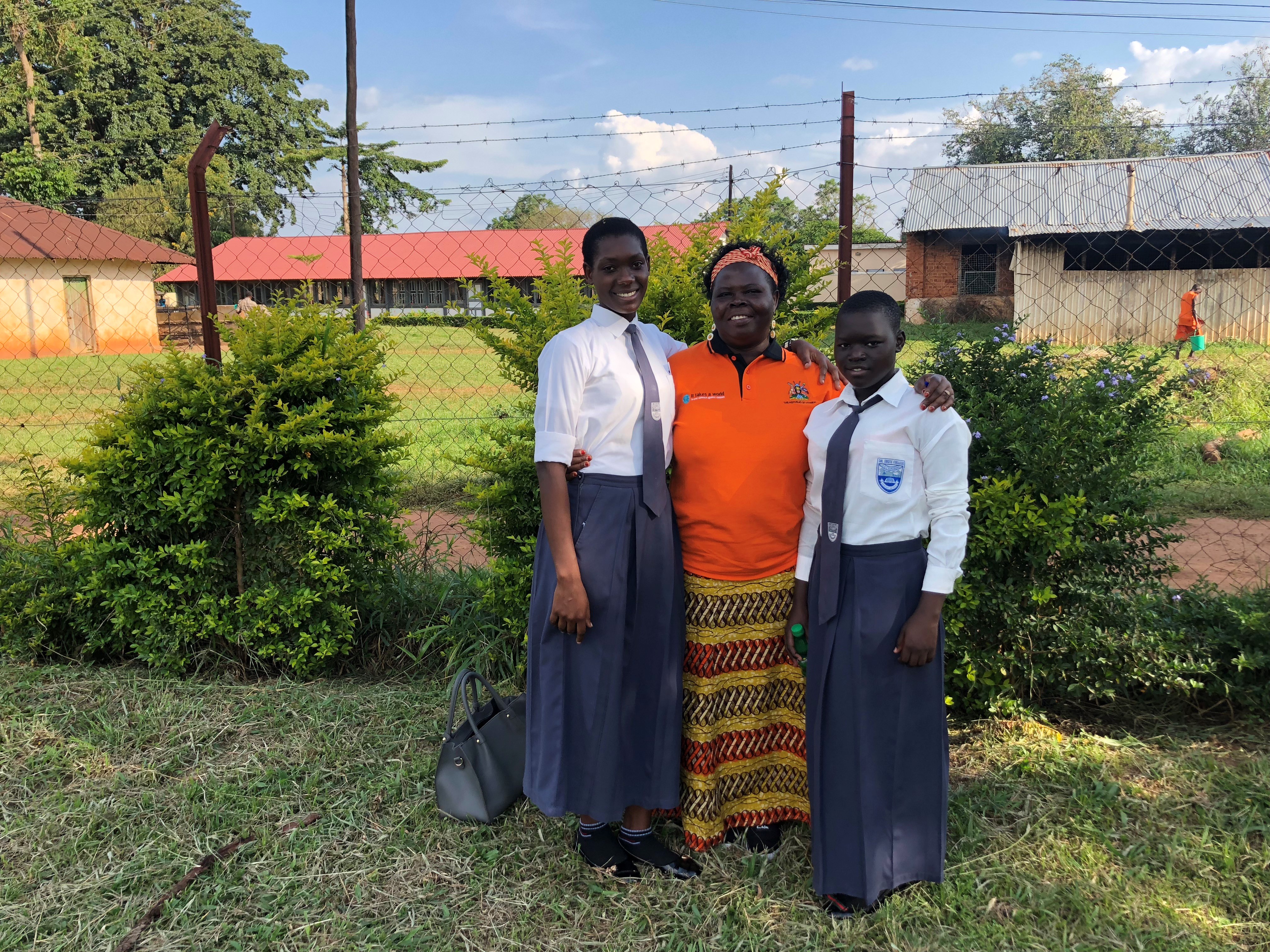Background
Around the world, only 45 percent of countries have achieved gender parity in primary school and just 25 percent in upper secondary. Disparity in education is overwhelmingly at the expense of girls.
In Uganda, World Vision’s Strengthening School Community Accountability for Girls’ Education (SAGE) project aims to reduce secondary school dropout among girls, ages 13 to 19 years, in 151 schools in 10 districts. The project uses a two-pronged strategy of an Early Warning System (EWS) and Stay in School Committees (SISC) to transform social norms and practices, reduce risks of early marriage, pregnancy, gender-based violence, and HIV infection, and support girls to stay in school.
Watch the video
Pricilia’s story
After her father passed away, 18-year-old Pricilia, her sister, and her six brothers were left with their mother, a hard-working business woman who sells cereals and other non-perishable items at a store in Lira District in northern Uganda. Pricilia is the 6th child of eight. Despite their limited resources, Pricilia’s family has always encouraged her education just as they did with her older brothers. She has excelled in secondary school, but her success has not come without its challenges.
In Pricilia’s community, disparity between girls and boys exists because many parents see more value in educating their male children. Pricilia says that girls are often left at home to help with housework or to care for younger siblings.
Many girls fear the walk to school and the harassment or violence they could face on the way. Pricilia recalled the humiliating harassment she received from male students in the school on her way to class, which made it difficult to stay focused on coursework. She noticed how teachers in her school preferred to teach boys and gave them more attention in classes like science and math, even though those were her favorite subjects. “If you’re not strong or courageous enough, you may not be able to carry on and you may feel education is not worthwhile,” she says.
In a school made up primarily of boys (75 percent), Pricilia is defying these cultural norms and mindsets that create barriers to equality in education. This year, Pricilia was elected as her school’s head prefect, an honor for older students that comes with extra authorities and duties. In the 50 years of the school’s existence, Pricilia was the first female to hold this leadership role.
This experience has empowered Pricilia. She knows that her voice is important, and she has used her role to empower other girls in the school. Through the SAGE project, Pricilia and her friends have started communicating about hardships, advising one another, and determining better solutions to challenges unique to the environment of a male-dominated school. For example, the girls help one another recognize unhealthy relationships with boys. They also encourage each other to stay focused on school and not get distracted.
Pricilia has organized and empowered her peers to speak openly to faculty and staff at the school about changes that need to be made for girls to thrive.
“DREAMS has taught us that you have to be empowered, to speak for yourself. No one will speak for you unless you rise up,” Pricilia says.
Pricilia and her peers have also shared practical skills from SAGE – like how to make menstrual hygiene products – with their communities. Pricilla and her mother taught women and girls in their neighborhood to make sanitary pads for themselves and to sell them in the village, allowing them to provide for themselves and their families.
Pricilia continues to share her story with friends and neighbors who might be hesitant to send their daughters to school. Her experience of academic success and achievement demonstrates to others the power of keeping a girl in school and the possibilities that exist for educated women and girls.

Outcomes
After completing secondary school next year, Pricilia hopes to go to university and grow her leadership abilities. “My dream is to become the first female president of this country,” she says. “We can do better than those men. We need to come up and show the world that we are better.”
Through the DREAMS project, girls like Pricilia are able to see a new world of opportunity through education. The retention rate for girls participating in the SAGE project was 99.6 percent, compared to a national rate of 70 percent for girls. Educated women have more skills, self-confidence, and are even likely to marry at a later age and have fewer children. At World Vision, we believe that every child is created in the image of God, with unique talents and abilities. Every child deserves the chance to experience life in all its fullness, to dream big dreams, and to realize their God-given potential.
ACT NOW:
Ask Congress to support foreign assistance funding.



One Comment